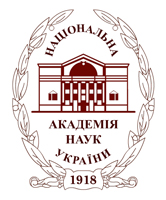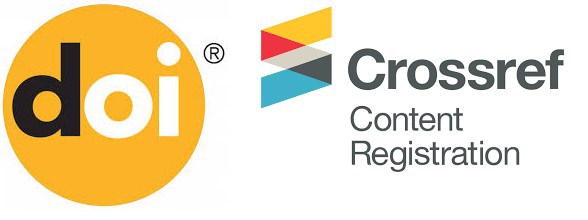 archive-vuchk.history.org.ua
archive-vuchk.history.org.ua
ISSN 2313-5883
Z arhìvìv VUČK, GPU, NKVD, KGB
The Journal meets the requirements set by the International Committee on Publication Ethics (COPE) and presented in the "Code of Conduct and Best Practices for Editors".
Principles of Editor and Publisher Ethics
The decision of the editorial board regarding the publication of the manuscript is based on the scientific and the originality of the research, the reliability of the facts unfolded in it and the relevance of the journal's profile.
The editorial board evaluates the intellectual content of manuscripts, regardless of race, gender, sexual orientation, religious beliefs, origin, citizenship, social status or political views of the authors.
The editorial board does not publish materials if there is reason to consider them a plagiarism (or the availability of borrowings without proper citation), compilation papers, as well as articles published earlier in other editions.
The editorial board ensures the confidentiality of information from manuscripts. Unpublished data obtained from materials submitted for consideration are not used for personal purposes and are not communicated to third parties without the written permission of the author.
The editorial board ensures the confidentiality of any information regarding reviewers.
The editorial board does not leave unanswered claims concerning the manuscripts under consideration or published materials. In case of a conflict situation, the editor-in-chief and members of the editorial board take all necessary measures to restore the violated rights. If necessary, the editorial board promotes the publication of corrections or refutations.
Principles of ethics of the reviewer
The reviewer may be a specialist who has scientific publications that refers to the subject matter of the manuscript that is being criticized.
The reviewer carries out an objective, impartial and timely evaluation of the text of the manuscript. The reviewer's conclusion must be reasoned. Personal notes to the author are not allowed.
The reviewer can not transfer the text of the manuscript for familiarization or discussion to other persons not authorized by the editorial board.
The reviewer may not use data from manuscripts for personal reason.
The reviewer has the right to request the editorial board to remove his / her from reviewing the article because of a conflict of interest with the author or organization, the inability to provide an objective assessment or lack of qualifications for reviewing the manuscript.
Collaboration with reviewers who provide inadequate, impolite, or timely feedback may be discontinued at the initiative of the editorial board.
Principles of ethics of the author of a scientific publication
The author guarantees the originality and reliability of the results of the research. Borrowed data should be processed according to the rules of citation (with obligatory indication of the author and the original source). Excessive borrowing and plagiarism in any form (including unexecuted quotes, rephrasing or assigning rights to the results of others' research) are unethical and inappropriate.
The author is responsible for the authenticity of facts, quotations and names. Consistent submission of false or fraudulent data is unacceptable.
The author should note the contribution of all persons who have influenced the course of research or determined the nature of the submitted scientific work. The article should include bibliographic references to publications that were important for the study.
In the case when the manuscript is the result of collective work, it is necessary to indicate all persons who were involved with it. It is unacceptable to indicate people who did not participate in the study.
The author does not have the right to submit to the editorial board materials that were previously published, or at the same time submit a manuscript to two or more editions.
If the author discovers significant errors or inaccuracies in the article at the stage of its consideration or after its publication, he / she should inform the editorial staff of the journal as soon as possible.
Procedure for considering complaints regarding violations of academic integrity and publication ethics
Complaints regarding violations of academic integrity and publication ethics are considered by the editor-in-chief or the person responsible for the issue, with the involvement of other members of the editorial board who have experience in considering such cases.
Each complaint is considered in accordance with the relevant COPE principles and rules: mutual respect for all participants; providing everyone with the opportunity to express and argue their position; resolving conflicts and disputes by seeking compromise and mutual understanding.
If a violation is recorded on the part of the author, he or she is given the opportunity to provide an explanation. In the event of a misunderstanding or minor error, the author has the opportunity to correct them. If gross violations are proven, the manuscript cannot be published, and in the case of an already published article, the article withdrawal procedure is applied.
If a violation is recorded on the part of one of the members of the editorial board and/or reviewers, they are removed from consideration of the case. If gross violations by reviewers are proven, they will be replaced by others for further review of the manuscript. If violations committed by a member of the editorial board are proven, they will be removed from the editorial board.
Every violator of academic integrity and publication ethics has the right to familiarise themselves with the materials related to the complaint, provide explanations, and appeal the decision.





